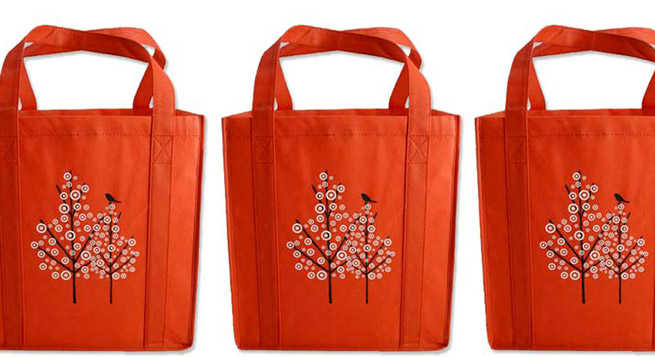
“Target is committed to the pursuit of pro?table and sustainable growth, consistent with our unwavering dedication to the social, environmental and economic well-being of the global community in which our guests, team members and shareholders live and work.”In Target’s efforts to be sustainable, creating less waste is always an issue. Here are some ways Target is taking care of business in that area: In 2006, Target redesigned its shopping cart. The new cart is made of lightweight recycled plastic to make it easier to handle, and the old wire backrest for kids has been replaced by smooth plastic. That year, Target also recycled 1.4 million pounds of obsolete electronic equipment. Target is the only national retailer employing a garment hanger reuse program, which keeps millions of pounds of metal and plastic out of landfills. In 2006, by reusing its hangers, Target kept 385 million hangers from going to landfills. In 2007, this amount increased to 434 million hangers kept from landfills, and in 2008, that amount was 407 million. When hangers break, Target recycles the plastic and metal and uses them in products like plastic flowerpots and other gardening supplies. In 2011, Target collected and recycled:
- More than 1,000 tons of plastic, glass and aluminum bottles and cans
- More than 7,000 tons of shrink-wrap and plastic bags
- More than 7 million pounds of electronics
“Success is making ourselves useful in the world, valuable to society, helping in lifting in the level of humanity, so conducting ourselves that when we go the world will be somewhat better of our having lived the brief span of our lives.”— George Draper Dayton, founder of Dayton Dry Goods Company, which is today known as Target Corporation, in 1902